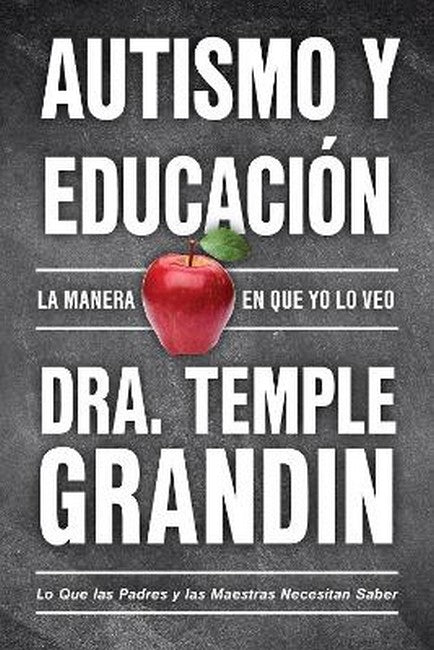Temple Grandin earned her PhD in Animal Science from the University of Illinois and is currently a Professor at Colorado State University. Dr. Grandin is one of the most respected individuals with high-functioning autism in the world. She presents at conferences nationwide, helping thousands of parents and professionals understand how to help individuals with autism, Asperger's syndrome, and PDD. She is the author of Emergence: Labeled Autistic, Thinking in Pictures, Animals in Translation (which spent many weeks on The New York Times Best-Seller List), The Autistic Brain, and The Loving Push, co-written with Debra Moore, PhD One of the most celebrated -- and effective -- animal advocates on the planet, Dr. Grandin revolutionized animal movement systems and spearheaded reform of the quality of life for the world's agricultural animals. She lives in Fort Collins, Colorado.
Request Academic Copy
Please copy the ISBN for submitting review copy form
Description
Grandin (The Autistic Brain), a professor of animal sciences at Colorado State University, delivers an insightful and pragmatic guide to helping autistic children thrive. Grandin, who is autistic, recalls how an early education program markedly improved her speech skills as a child-before that, she'd sometimes resort to screaming to communicate-and draws on that experience to advocate for an early-intervention, child-centered approach to education. For example, she explains that while nonverbal children between ages two and five require 10-20 hours per week of one-on-one speech and behavioral instruction, it can come from a professional or a capable family member; what's important are progress markers such as reduced impulsivity and improved speech. Elsewhere, she recommends zeroing in on and cultivating the child's individual strengths rather than focusing on deficits. In considering the wide autism spectrum, with members "rang[ing] from computer scientists to individuals who will never live independently," Grandin stresses it's vital not to overvalue the autism label, as it can prove limiting and imprecise. The author's pinpoint guiding principles (high expectations yield results) and brass-tacks recommendations (strategies for teaching turn-taking or mastering basic life skills) combine to create a program that's thoughtful and comprehensive, but not overwhelming. For educators or parents of autistic children, this will be a valuable resource." - Publisher's Weekly"Grandin (The Autistic Brain), profesor de ciencias animales en la Universidad Estatal de Colorado, ofrece una guia perspicaz y pragmatica para ayudar a los ninos autistas a prosperar. Grandin, que es autista, recuerda como un programa de educacion temprana mejoro notablemente sus habilidades del habla cuando era nina (antes de eso, a veces recurria a los gritos para comunicarse) y se basa en esa experiencia para abogar por una intervencion temprana centrada en el nino. enfoque de la educacion. Por ejemplo, explica que si bien los ninos no verbales de entre dos y cinco anos requieren de 10 a 20 horas semanales de instruccion individualizada del habla y del comportamiento, esta puede provenir de un profesional o de un miembro capaz de la familia; lo importante son los marcadores de progreso, como la reduccion de la impulsividad y la mejora del habla. En otros lugares, recomienda concentrarse y cultivar las fortalezas individuales del nino en lugar de centrarse en sus deficits. Al considerar el amplio espectro del autismo, con miembros que "van desde cientificos informaticos hasta individuos que nunca viviran de forma independiente", Grandin enfatiza que es vital no sobrevalorar la etiqueta de autismo, ya que puede resultar limitante e imprecisa. Los precisos principios rectores del autor (las altas expectativas producen resultados) y las recomendaciones detalladas (estrategias para ensenar a tomar turnos o dominar habilidades basicas para la vida) se combinan para crear un programa que es reflexivo y completo, pero no abrumador. Para educadores o padres de ninos autistas, este sera un recurso valioso." - Publisher's Weekly

